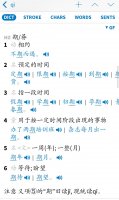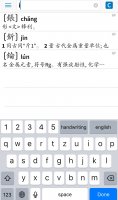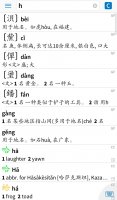goldyn chyld
状元
Personally I think that it's the dictionary publishers that are responsible for the dictionary texts; it's their decision to write 【陸】 vs. 【臺】 or 【中】 vs. 【臺】 and if somebody is unhappy with it, you can always say you just present the dictionary entry in the way it was published.
Totally agree with that. I mean, it is a touchy subject as some people will always be offended, but【陸】 vs.【臺】are the "original" tags used in the online version of the Cross-Strait Dictionary, so you're really just presenting the user with what was there already.



